Home Tags Posts tagged with "muammar gaddafi"
muammar gaddafi
Muammar Gaddafi’s son, Moutassim Gaddafi aka Hannibal, has been freed after being briefly kidnapped by an armed group in Lebanon, security sources say.
In a video shown on Lebanese TV, Hannibal Gaddafi was seen appealing for more information concerning the 1978 disappearance of the prominent Lebanese Shia cleric Musa al-Sadr.
The late Libyan leader’s son was freed in the city of Baalbek and dispatched to Beirut, police told AP.
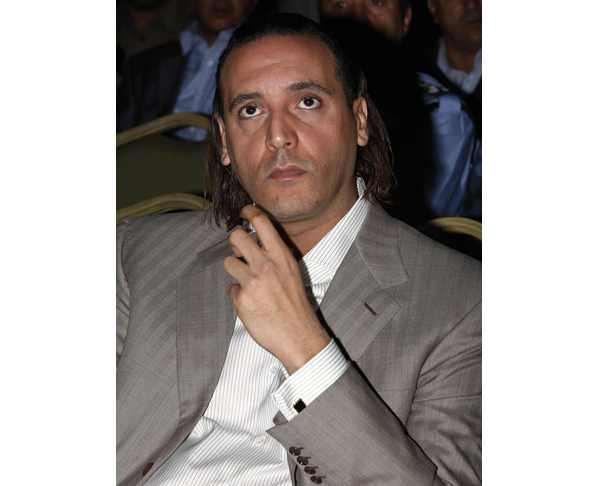
Photo Reuters
Hannibal Gaddafi, a 40-year-old former playboy, was given sanctuary in Oman in 2012.
His father Muammar was overthrown by rebels in a 2011 uprising.
Musa al-Sadr, one of the most prominent Shia clerics of the 20th Century, disappeared along with two others during a trip to Libya in 1978.
Muammar Gaddafi denied any involvement in his disappearance, but many suspect him of having orchestrated it.
The case has long soured relations between the two countries.
It is not known how long Hannibal Gaddafi has been in Lebanon.
Hannibal Gaddafi was under house arrest while in Oman with his sister Ayesha and mother Safiya.
Libya’s Supreme Court has invalidated the elected parliament after a legal challenge by a group of politicians.
Libya’s parliament was internationally recognized.
The court said the parliament was unconstitutional, dealing a blow to Libya’s elected government, which is operating in the country’s east.
The ruling was celebrated by militias occupying the capital Tripoli, who have set up an alternative parliament.
Politicians in Tobruk, the city near the Egyptian border where the parliament is now based, have repeatedly alleged that Tripoli’s courts, judges and their families have been under threat by the coalition of armed groups that controls the capital.
Prosecution lawyers who won Thursday’s case denied that claim.
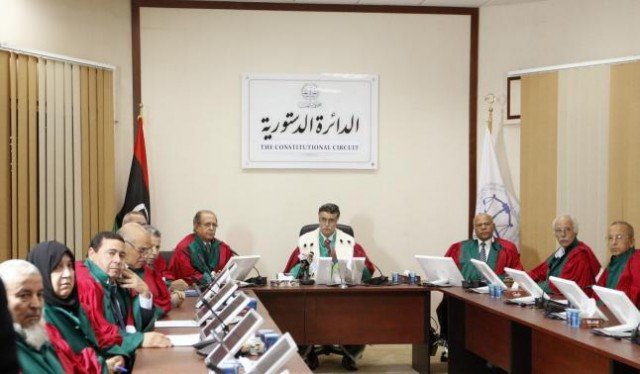
Libya’s Supreme Court has invalidated the elected parliament after a legal challenge by a group of politicians (photo Reuters)
The reason for the court’s decision is not yet clear. Those behind the challenge – a minority group of dissident lawmakers – say the parliament is unconstitutional because it does not sit in Tripoli or Benghazi, AFP news agency reports.
The group added that parliament had overstepped its authority by calling for foreign military assistance against the militias.
Libya has been plagued by instability since the overthrow of Colonel Muammar Gaddafi in 2011. Different groups now control most of the country including the two largest cities, Tripoli and Benghazi.
Islamist-leaning militias, some of them remnants of forces which helped oust Muammar Gaddafi, have been fighting for power among themselves.
Recent clashes forced the country’s parliament to move to Tobruk.
The groups that took control of the capital in August attempted to reinstate Libya’s previous parliament and appoint a parallel government, but this has not been recognized internationally.
Meanwhile, a cousin of Muammar Gaddafi has said that former regime figures are planning to return to Libya within two months.
Ahmed Gaddaf al-Dam told the Times newspaper that they would return once government forces regained control of the country’s major cities.
He claimed exiled supporters of Muammar Gaddafi were in talks with parliament, despite it being forced out of the capital.
[youtube aOzYkdCqpgQ 650]
In a TV interview, Nicolas Sarkozy has said the French justice system is being used for “political ends” after he was placed under formal investigation for influence peddling.
The former president denied committing any unlawful act.
Nicolas Sarkozy said the “grotesque” case against him had been intended to humiliate him and harm his reputation.
It is alleged Nicolas Sarkozy sought insider information from a judge about an inquiry into illegal campaign funding.
Nicolas Sarkozy was detained on Tuesday for questioning – the first time a former French head of state has been held in police custody.
His clear accusation is that left-wing elements in the judiciary are trying to bring him down and prevent his return to politics.
Opponents of Nicolas Sarkozy say his counter-attack is typical of the man and a bid to deflect attention away from the allegations.
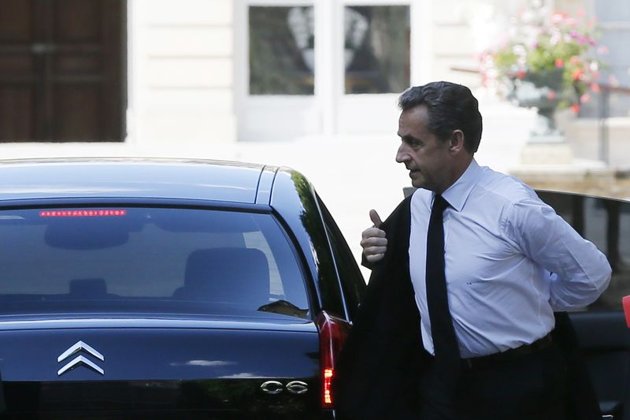
Nicolas Sarkozy gave his first interview after being placed under formal investigation for influence peddling
The interview, which was recorded for TF1 television and Europe 1 radio, was broadcast on Wednesday evening.
Nicolas Sarkozy said: “The situation is sufficiently serious to tell the French people where we stand on the political exploitation of part of the legal system today.
“I say to all those who are listening or watching that I have never betrayed them and have never committed an act against the Republic’s principles and the rule of law.”
Nicolas Sarkozy said he is “deeply shocked” by the investigation and he accused the Syndicat de la Magistrature trade union of seeking to destroy him.
“Everything is being done to give me a reputation that is not true,” he said.
Nicolas Sarkozy added: “In our country, which is the country of human rights and the rule of law, there are things that are being organized.
“The French need to know what they are and, in conscience and freedom, judge what to make of it.”
He also expressed his anger at the way he was summoned, saying there “was an intention to humiliate” him with the formal detention.
Earlier, France’s PM Manuel Valls insisted the investigation was being carried out independently of the Socialist government.
Talking to French TV, he said “no one is above the law” but added that it was important to remember “there is the presumption of innocence.”
Nicolas Sarkozy was released from custody around midnight after appearing in court in Paris.
[youtube fweMLDHXw1I 650]
Former French President Nicolas Sarkozy has been placed under formal investigation over alleged influence peddling.
Nicolas Sarkozy, 59, appeared before a judge in Paris late on Tuesday after 15 hours of questioning by anti-corruption police.
This is thought to be the first time a former French head of state has been held in police custody.
Nicolas Sarkozy’s lawyer, Thierry Herzog, and a magistrate, Gilbert Azibert, were also placed under formal investigation over the same allegations.
A second magistrate called in for questioning, Patrick Sassoust, had not appeared before a judge as of Tuesday night.
When a suspect is placed under formal investigation, he or she is then examined by a judge, who determines whether there is sufficient evidence for the suspect to be charged.
The step often, but not always, leads to trial. Influence-peddling can be punished by up to five years in prison and a fine of 500,000 euros ($684,000).
Nicolas Sarkozy was released from custody around midnight after appearing in court in Paris.

Nicolas Sarkozy has been placed under formal investigation over alleged influence peddling (photo Reuters)
He had been brought to the court from the judicial police office in Nanterre, west of the French capital, where he had been interrogated.
Paul-Albert Iweins, the lawyer representing Thierry Herzog, said the case rested only on “phone taps… whose legal basis will be strongly contested”.
“There’s not a lot in this dossier, since none of the material elements of what I’ve seen, and what we could contest, support the accusations,” he added.
The inquiry arose out of a separate investigation into whether Nicolas Sarkozy had received illegal funding for his election campaign in 2007 from the late Libyan leader, Muammar Gaddafi.
Nicolas Sarkozy is hoping to challenge again for the presidency in 2017 and the inquiry is seen as a blow to his hopes of returning to office.
Investigators are trying to find out whether Nicolas Sarkozy, who was president from 2007 to 2012, had promised a prestigious role in Monaco to Gilbert Azibert, in exchange for information about an investigation into alleged illegal campaign funding.
They are looking into claims that Nicolas Sarkozy was warned his phone was being bugged as part of the Gaddafi inquiry.
Nicolas Sarkozy’s predecessor, Jacques Chirac, was given a suspended prison sentence in 2011 for embezzlement and breach of trust while he was mayor of Paris but he was never questioned in custody.
An investigation was launched in February into whether Nicolas Sarkozy had sought inside information about the inquiry into his 2007 election campaign funding.
It is alleged that Nicolas Sarkozy was kept informed of proceedings against him while a decision was made over whether his work diaries – seized as part of the funding inquiry – should be kept in the hands of the justice system.
The Court of Cassation ruled in March 2014 that the diaries should not be returned.
Investigators believe the former president was tipped off that his phone was being bugged as part of the inquiry.
Nicolas Sarkozy insists the allegations against him are politically motivated. He is seeking to regain the leadership of the centre-right UMP party later this year.
[youtube kkwrug3v2gE 650]
New reports have claimed that Nicolas Sarkozy has had his phone tapped for the past year on the orders of judges investigating alleged campaign donations from Libya.
French newspaper Le Monde says the phone taps have revealed evidence of tampering with the justice system.
It says a senior prosecutor in the country’s highest court was feeding Nicolas Sarkozy confidential information.
Nicolas Sarkozy’s lawyer denies the claims and says the phone taps were illegal.
The investigators who ordered the taps were looking into allegations, unproven, that Nicolas Sarkozy had taken illegal payments for his election campaign from late Libyan ruler Muammar Gaddafi.

Nicolas Sarkozy has had his phone tapped for the past year on the orders of judges investigating alleged campaign donations from Libya
According to Le Monde, what the investigators discovered from the phone taps was that Nicolas Sarkozy was getting inside information from the courts about the course of various inquiries into his past.
This information was allegedly being fed from a senior prosecutor at the appeals court whom, Le Monde says, Nicolas Sarkozy tried to reward with an official post in Monaco.
Nicolas Sarkozy’s lawyer, Thierry Herzog, said on Friday that his client “is probably still being tapped” and denounced what he said was a politically motivated plot against him.
He told AFP news agency: “There was no attempt to pervert the course of justice and in due course this monstrous violation will be shown to have been a political affair.”
Nicolas Sarkozy is planning a political comeback, and the drip of allegations like this has the potential to do him harm.
It was in 2011 that Col. Muammar Gaddafi’s son, Saif al-Islam, accused Nicolas Sarkozy of taking millions of his father’s money for illegal campaign funding, a claim Sarkozy has strongly denied.
At the time France was spearheading NATO’s military campaign in Libya.
NicolasSarkozy, who lost the 2012 presidential election to Francois Hollande, is also under formal investigation over claims he received illegal donations for the 2007 race from France’s richest woman, 90-year-old L’Oreal heiress Liliane Bettencourt. He has denied all the allegations.
[youtube 8GfgD7a3LU4 650]
Col. Muammar Gaddafi’s son, Saadi, has been extradited from Niger and is now in custody in Tripoli, the Libyan government says.
Pictures posted on the internet showed Saadi Gaddafi, one of Col. Muammar Gaddafi’s seven sons, having his head and beard shaved.
Saadi Gaddafi, the former head of Libya’s football federation, fled to Niger after his father was killed in the 2011 revolution.
He is accused of shooting protesters and other crimes during Muammar Gaddafi’s rule.
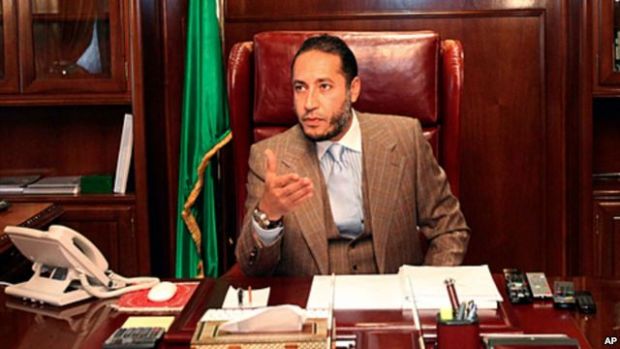
Saadi Gaddafi, the former head of Libya’s football federation, fled to Niger after his father was killed in the 2011 revolution
The Libyan government made an announcement about Saadi Gaddafi’s extradition in a short statement early on Thursday.
“The Libyan government received today Saadi Gaddafi and he arrived in Tripoli,” it said.
The plane with Saadi Gaddafi landed at 02:50 local time.
Niger had previously refused Libyan requests to extradite him, with the justice minister saying he was “certain to face the death penalty”.
In 2012, Interpol issued a “red notice”, obliging member countries to arrest him.
Saadi Gaddafi had reportedly resided in a state guesthouse in Niger’s capital, Niamey, after fleeing across the Sahara Desert. He is best known for a brief career in top-flight Italian football which was cut short by a failed drugs test, as well as his playboy lifestyle.
[youtube nmfF4YuDUs0 650]
Libya’s deputy industry minister Hassan al-Droui has been shot dead during a visit to his hometown of Sirte, east of the capital Tripoli.
Local media quoted officials as saying unknown gunmen “sprayed bullets” at Hassan al-Droui near a central market.
It is the first assassination of a member of Libya’s transitional government.
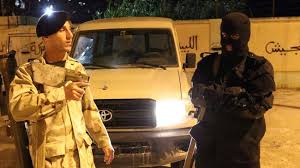
Libya’s deputy industry minister Hassan al-Droui has been shot dead during a visit to his hometown of Sirte
Libya has suffered continuing lawlessness since the overthrow of Col Muammar Gaddafi in October 2011.
The motive behind Hassan al-Droui’s assassination is unclear.
Hassan al-Droui was a former member of the National Transitional Council, the political arm of the 2011 uprising.
He was appointed to his role by the transitional government’s first prime minister and kept his position when Ali Zeidan took over.
Sirte was the site of the final battle of Libya’s civil war, during which Col. Muammar Gaddafi was captured and shot dead while trying to hide from rebels.
A New York Times in-depth report found no proof that al-Qaeda or any international terrorist groups played any role in the Benghazi attack, which killed four Americans, including Ambassador Christopher Stevens.
A senior Obama administration official said the White House does not dispute the article published Saturday about the 2012 attack on the US Consulate in Benghazi, Libya.
The six-part report goes on to say that an American-made video mocking Islam largely triggered the attack, which was not well-planned.
“The attack was led, instead, by fighters who had benefited directly from NATO’s extensive air power and logistics support during the uprising against Colonel Qaddafi,” the Times report reads, referring to the late Libyan leader Muammar Gadhafi.
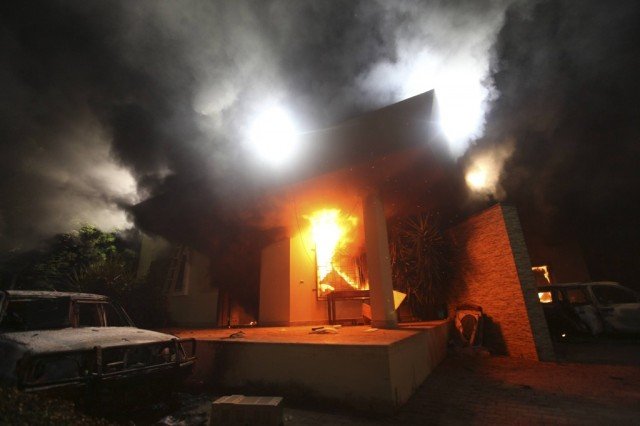
A New York Times in-depth report found no proof that al-Qaeda or any international terrorist groups played any role in the Benghazi attack
“And contrary to claims by some members of Congress, it was fueled in large part by anger at an American-made video denigrating Islam.”
The Times said its investigation took months and was “centered on extensive interviews with Libyans in Benghazi who had direct knowledge of the attack there and its context.”
It is not surprising the White House would welcome this report. Since the attack, Republicans have accused the Obama administration of downplaying the perpetrators’ links to al-Qaeda for political gain. The attack took place during the last leg of the 2012 presidential campaign.
Then UN Ambassador Susan Rice (now the national security advisor) became a lightning rod of criticism after appearing on all the Sunday talk shows shortly after the Benghazi attack and arguing it was the result of the American-made video.
Republicans have also held several hearings into the administration’s handling of the attack and its aftermath.
[youtube _ngfh72lqCo 650]
Libya’s PM Ali Zeidan has returned to his office after being held for several hours by militiamen loosely allied to the government.
The Libya Revolutionaries Operations Room said it had captured Ali Zeidan in Tripoli, claiming it was acting on orders from the prosecutor general.
The justice ministry denied this.
The militia was one of several groups angered by a US commando raid on Libyan soil on Saturday in which senior al-Qaeda suspect Anas al-Liby was seized.
Many saw the raid as a breach of Libyan sovereignty. There is growing pressure on the government to explain if it was involved but in a statement, the Revolutionaries Operations Room (LROR) said its actions had not been related to Anas al-Liby’s detention.
The official Lana news agency also named another formal rebel group, the Brigade for the Fight against Crime, as being involved.
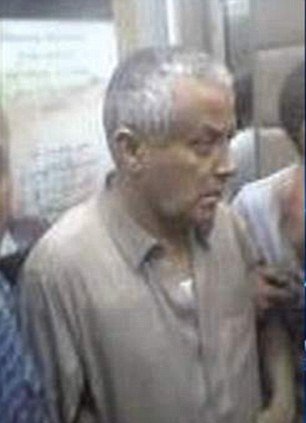
Libya’s PM Ali Zeidan has returned to his office after being held for several hours by militiamen loosely allied to the government
State TV broadcast live as Ali Zeidan arrived at his office in Tripoli. There was a high security presence as his car pulled up outside. The prime minister made no immediate comment but was expected to give a news briefing shortly.
Foreign Minister Mohammed Abdelaziz said earlier he had no details on the circumstances of the release.
It was unclear whether the militia had released the prime minister voluntarily or whether other security forces had intervened.
Ali Zeidan had been taken in a pre-dawn raid on the Corinthia Hotel by more than 100 armed men.
The LROR said it was acting on the orders of the prosecutor general and in accordance with a section of Libya’s criminal code relating to “crimes and misdemeanors harmful to state security”.
But Justice Minister Salah al-Marghani said the prosecutor general had issued no arrest warrant, according to state-run National Libyan TV.
Photographs circulating online and shown on TV showed Ali Zeidan surrounded by what it said were armed men as he was led away. There were no reports of violence during his capture.
The prime minister was reportedly being held at the interior ministry anti-crime department in Tripoli, where an official said he was being treated well.
In a news conference shortly before the release was announced, the government condemned the “criminal act” of his detention and said it would not give in to “blackmail”.
The LROR is one of a number of militias operating in Libya which are nominally attached to government ministries but often act independently and, correspondents say, often have the upper hand over police and army forces.
The government has been struggling to contain the militias, which were heavily involved in the revolt which overthrew Colonel Muammar Gaddafi and, two years on, still control many parts of the country.
[youtube Eac3NJ3Q6Ug]
Libya’s Prime Minister Ali Zeidan has been abducted by gunmen in Tripoli.
Ali Zeidan was taken from his hotel at dawn “by gunmen to an unknown place for unknown reasons”, said a statement on the government’s website.
The details are unclear – sources say Ali Zeidan was arrested by an anti-crime militia allied to the government, but others that he had been kidnapped.
There is speculation the event is linked to the capture of a senior al-Qaeda suspect in Libya by US forces.
The government has come under pressure to explain how US commandos were able to seize Anas al-Liby last Saturday.
He is wanted in the US over the 1998 bombings of US embassies in Kenya and Tanzania.
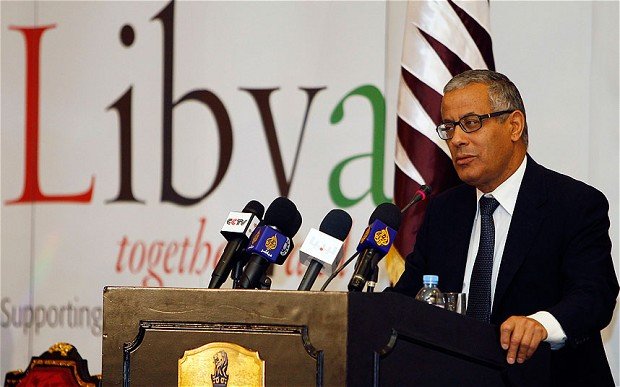
Libya’s Prime Minister Ali Zeidan has been abducted by gunmen in Tripoli
On Monday, Libya demanded an explanation from the US ambassador over the incident.
The details of Ali Zeidan’s capture remain unclear, but that he was taken by armed men from a hotel he resides in the early hours of the morning.
The government website said he had been taken “to an unknown place for unknown reasons by a group thought to be from the Tripoli Revolutionaries Control Room and the Committee for Fighting Crime”.
There are a number of militia groups operating in Libya which are nominally attached to government ministries but often act independently.
The ministry of justice confirmed that no arrest warrant had been issued for Ali Zeidan.
The government statement did not name the hotel, but a woman at the Corinthia Hotel – where the prime minister lives – confirmed the incident happened there when armed men entered the building.
She said no-one had been killed.
Libya’s cabinet has been summoned for an immediate meeting under the leadership of the deputy prime minister.
Al-Arabiya TV station broadcast images which showed Ali Zeidan looking disheveled and being escorted by what the station said were armed men.
Two years after the revolt which overthrew Muammar Gaddafi, Libya’s government has been struggling to contain rival tribal militias and Islamist militants who control parts of the country.
[youtube ZSjbpZ5WlZY]
More than 1,000 inmates have escaped from a jail in the Libyan city of Benghazi.
A security official from the jail told the AP news agency that most of the escapees were facing serious charges.

More than 1,000 inmates have escaped from a jail in the Libyan city of Benghazi
Benghazi is one of the most unstable parts of post-revolution Libya. Last year the US ambassador and three other Americans were killed there.
It is not clear whether the jailbreak was part of ongoing political unrest in the city.
Earlier protesters attacked offices linked to the Muslim Brotherhood following the assassination of the prominent political activist Abdelsalam al-Mismari.
They stormed offices of the Justice and Construction Party, the Brotherhood’s political wing.
A retired air-force colonel and a senior police officer were also shot dead on Friday in Benghazi, in the latest in a series of targeted killings of security personnel.
Libya’s government is struggling to control armed groups nearly two years after Colonel Muammar Gaddafi was toppled.
Ahmed Gaddaf al-Dam, a close aide and cousin of late Libyan leader Muammar Gaddafi, has been arrested in Egypt.
Ahmed Gaddaf al-Dam was Tripoli’s special envoy to Cairo for many years and left Libya for Egypt shortly after the 2011 uprising against Muammar Gaddafi.
Although sought by the Libyan authorities, the charges against Ahmed Gaddaf al-Dam are unknown.
Egyptian security forces surrounded Ahmed Gaddaf al-Dam’s Cairo home and there was an exchange of fire before he surrendered.
The circumstances surrounding the arrest remain unclear.
Vehicles of the Egyptian security forces had been sent overnight to Ahmed Gaddaf al-Dam’s home in the Zamalek neighborhood of Cairo.
Ahmed Gaddaf al-Dam told foreign media outlets that his guards had clashed with the Egyptian forces as they were unsure of their identity. It is unclear if anyone was injured.
Pictures then showed a smiling Ahmed Gaddaf al-Dam in a car, waving to the camera as he left the home.
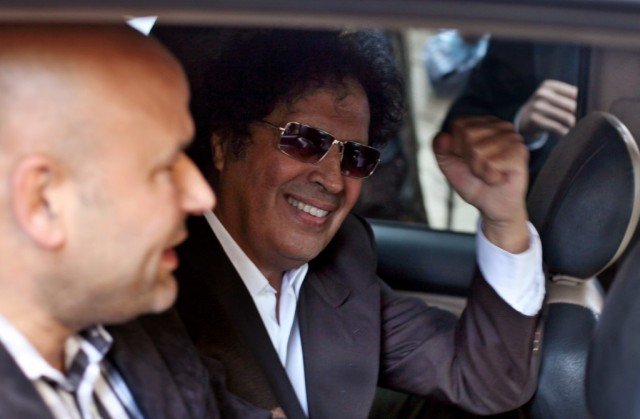
Ahmed Gaddaf al-Dam, a close aide and cousin of late Libyan leader Muammar Gaddafi, has been arrested in Egypt
Ahmed Gaddaf al-Dam played down the arrest, saying he was going voluntarily to Cairo’s prosecutor general with his lawyers “to file a complaint”.After arriving in Egypt in 2011, Ahmed Gaddaf al-Dam initially claimed he had defected, but took a more neutral stance weeks later, fuelling suspicion in Libya that he was still working for Col. Muammar Gaddafi – an accusation he has denied in the past.
Libya has asked Egypt to hand over dozens of Libyans affiliated with the Gaddafi regime.
The arrest comes on the second anniversary of the start of the NATO air campaign in Libya that helped rebels in their fight against Muammar Gaddafi.
Former French President Nicolas Sarkozy, who championed the intervention, is in Tripoli for the day, meeting Libyan PM Ali Zeidan.
Ali Zeidan confirmed Ahmed Gaddaf al-Dam’s arrest and thanked the Egyptian authorities for their “judicial cooperation”.
Dozens of militiamen have occupied Libya’s parliament to register their anger over the formation of the new government.
The gunmen are demanding some of the ministers be removed because they have links to the late Muammar Gaddafi’s regime.
At least a dozen trucks mounted with anti-aircraft guns are lining the main road to the parliament.
Libya held a peaceful election in July and finally agreed the composition of a government on Wednesday.
Prime Minister Ali Zidan gained the support of the National Congress for his choice of ministers.
His list included liberal figures and Islamists in an attempt to forge a coalition acceptable to all parties.
But negotiations were disrupted by protests earlier this week.
And late on Wednesday gunmen broke through security and occupied the Congress building.
Some of the gunmen are dressed in scruffy army fatigues and others in civilian clothes.
Some are from the western city of Misrata and others are from Tripoli, and few are willing to talk to the media.
“Some of them have had long ties with Gaddafi, we don’t want them,” said a militiaman dressed in civilian clothes.
Presidential guards are stationed in the Congress complex and have been ordered not to fight with the men.
The militiamen are believed to be in talks with politicians to resolve the stand-off.
Despite largely peaceful elections in July, Libya’s transition continues to be affected by instability.
Reining in the different militia and trying to integrate them into a single national army will be one of the biggest challenges for any new government, analysts say.
The new government has representatives from the two most prominent blocs in Congress – the Alliance of National Forces led by liberal former Prime Minister Mahmoud Jibril, and the Muslim Brotherhood’s Justice and Construction Party.
Ali Zidan said he had tried to strike a balance between Libya’s different regions in making the appointments.
According to his list, the defence and interior ministries would be headed by ministers from the eastern city of Benghazi, considered to be the cradle of last year’s revolution that ended Gaddafi’s rule.
Two women are also among the ministers proposed by Ali Zidan.
Moussa Ibrahim, the spokesman for late leader Muammar Gaddafi, has been captured, according to the office of Libya’s prime minister.
The office said he had been arrested by government forces in Tarhouna, 65 km (40 miles) south of Tripoli.
Other Libyan officials say they are skeptical, as such reports have proved false in the past.
The prime minister’s office did not provide any photographic or video evidence of the reported capture.
“Moussa Ibrahim has been arrested by forces belonging to the Libyan government in the town of Tarhouna and he is being transferred to Tripoli to begin interrogation,” a statement issued by the office of Prime Minister Ali Zidan said.
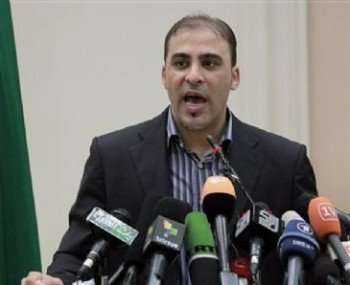
Moussa Ibrahim, the spokesman for late leader Muammar Gaddafi, has been captured
Tarhouna is located between Tripoli and Bani Walid – one of the last strongholds of pro-Gaddafi forces in the closing stages of last year’s conflicts.
During the war in Libya last year, Moussa Ibrahim held regular press conferences in Tripoli at the Rixos hotel, which was used by many international journalists.
He was last seen there shortly before the fall of Tripoli in August 2011.
The reported taking of Moussa Ibrahim comes on the first anniversary of Col. Gaddafi’s capture. The latter was seized and killed near his hometown of Sirte.
Interim leader Mohammed Magarief said that one year on, the country has not yet been fully liberated.
Militia groups which helped to defeat pro-Gaddafi forces remain powerful in many parts of the country. There have been clashes between militias in Bani Walid in recent days.
Libya’s interim leader Mohammed Magarief has vowed to disband all illegal militias in the aftermath of the US ambassador’s death this month.
All camps and militias not under the authority of the government would be dissolved and no unauthorized checkpoints allowed, he said.
Militias that emerged during the fight to topple Colonel Muammar Gaddafi last year remain a powerful force.
Residents of Benghazi evicted militants in response to the envoy’s death.

Libya’s interim leader Mohammed Magarief has vowed to disband all illegal militias in the aftermath of the US ambassador's death
Ambassador Christopher Stevens and three others Americans died during an attack on the city’s US consulate on 11 September, which coincided with protests over an anti-Islam video produced in the US.
Islamist militants have denied being behind the attack.
Libya has been awash with firearms as well as powerful regional brigades and local town militias since the uprising.
The government has relied on some brigades to help provide security, and many people will be watching closely to see how the authorities will go about achieving the mammoth task of gaining full military control over the country.
“[We want to] dissolve all militias and military camps which are not under the control of the state,” said Mohammed Magarief, the parliamentary speaker who acts as head of state until elections next year.
“We call on everyone to stop using violence and carrying weapons in the streets and squares and public places.”
One powerful militia in eastern Libya, the Abu Slim Brigade, has already announced it will disband and leave its bases in Derna, a town east of Benghazi.
Another militia, Ansar al-Sharia, which denies attacking the US consulate, is also reported to be leaving Derna.
Ansar al-Sharia was driven out of its headquarters in Benghazi over the weekend in unrest which left at least 11 people dead.
However, the militants left with their weapons.
President Barack Obama has confirmed that US ambassador to Libya, Christopher Stevens, is among four Americans killed in an attack on the US consulate in the eastern Libyan city of Benghazi.
Unidentified armed men stormed the grounds on Tuesday night in a protest over a US-produced film that is said to insult the Prophet Muhammad.
They shot at buildings and threw handmade bombs into the compound.
Protesters also attacked the US embassy in Cairo over the film.
In a statement, Barack Obama condemned the “outrageous attack” on the facility in Benghazi.

US ambassador to Libya, Christopher Stevens, is among four Americans killed in an attack on the US consulate in Benghazi
“Chris was a courageous and exemplary representative of the United States. Throughout the Libyan revolution, he selflessly served our country and the Libyan people at our mission in Benghazi,” he said.
President Barack Obama also ordered a tightening of security at US diplomatic posts around the globe.
A second US man killed in the attack was named as Sean Smith, a father of two who was employed as an information management officer.
US Secretary of State Hillary Clinton described Sean Smith as “one of the best”.
The names of the remaining two victims have not yet been released.
It is not yet clear how the four died.
Hillary Clinton said of Christopher Stevens: “Chris was committed to advancing America’s values and interests, even when that meant putting himself in danger.”
The killings were also condemned by the Libyan Deputy Prime Minister Mustafa Abu Shagur.
“I condemn these barbaric acts in the strongest possible terms. This is an attack on America, Libya and free people everywhere,” he said on the social networking site Twitter.
Reports say a militia known as the Ansar al-Sharia brigade was involved in the attack, but the group has denied the claim.
Many people are still armed following the conflict that overthrew Col. Muammar Gaddafi last year.
Analysts say the attack will raise serious new concerns about stability in the country and the ability of the new Libyan administration to maintain security.
Other countries will be wondering whether their consular staff is safe in Libya, they say.
The film that sparked the demonstration is said to have been produced by a 52-year-old US citizen from California named Sam Bacile, and promoted by an expatriate Egyptian Copt.
The two men are described as having anti-Islamic views.
A trailer of the low-budget movie, which correspondents say is highly provocative and insulting to Muslims, has appeared on YouTube translated into Arabic.
There are real fears that protests over the video could spread.
A demonstration in Cairo on Tuesday saw protesters breach the US embassy and tear down the US flag, which was flying at half mast to mark the 9/11 attacks.
They condemned what they said was the humiliation of the Prophet of Islam under the pretext of freedom of speech.
[youtube 4PMC3mYYl-M]
[youtube TmybuDexikM]















